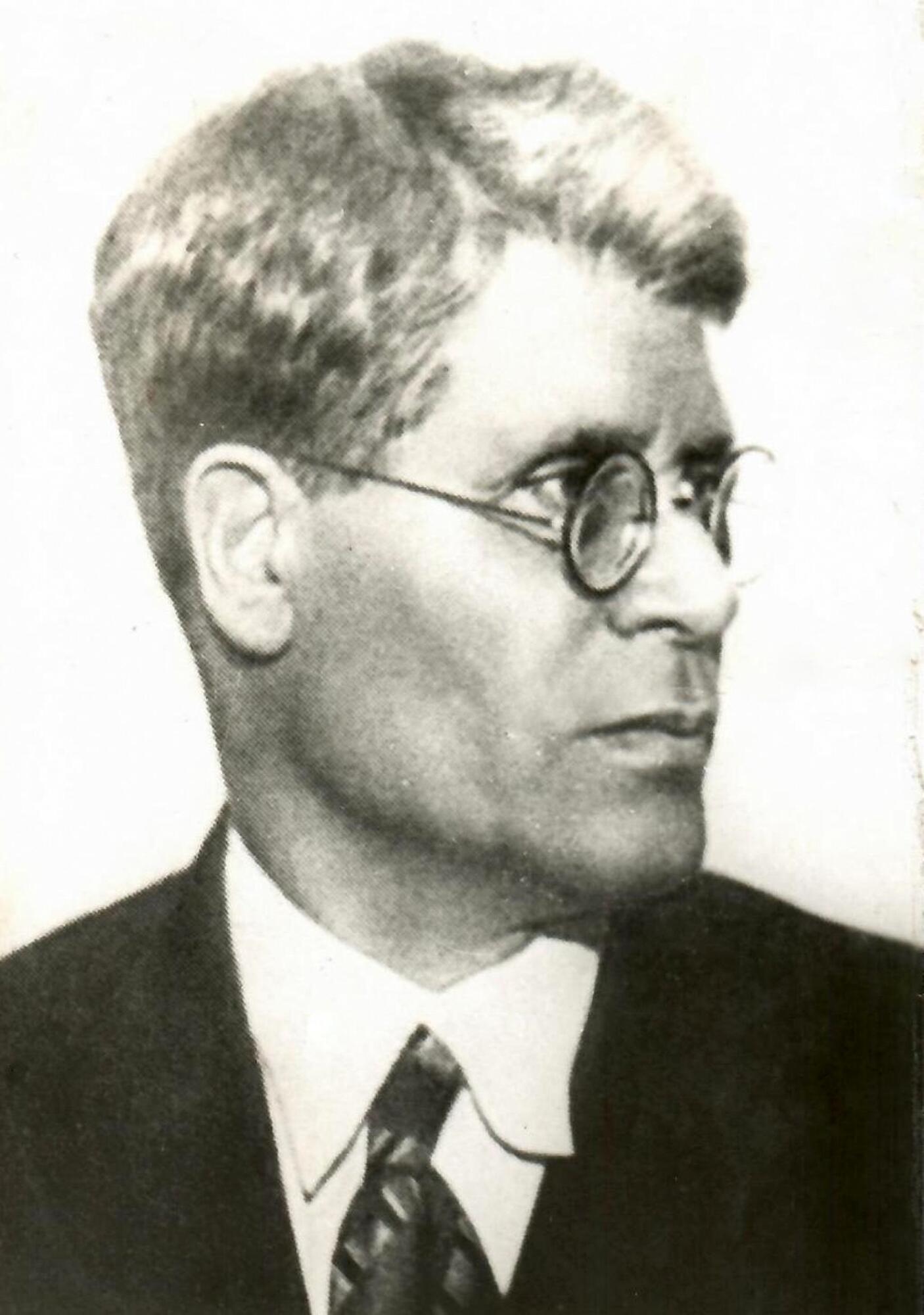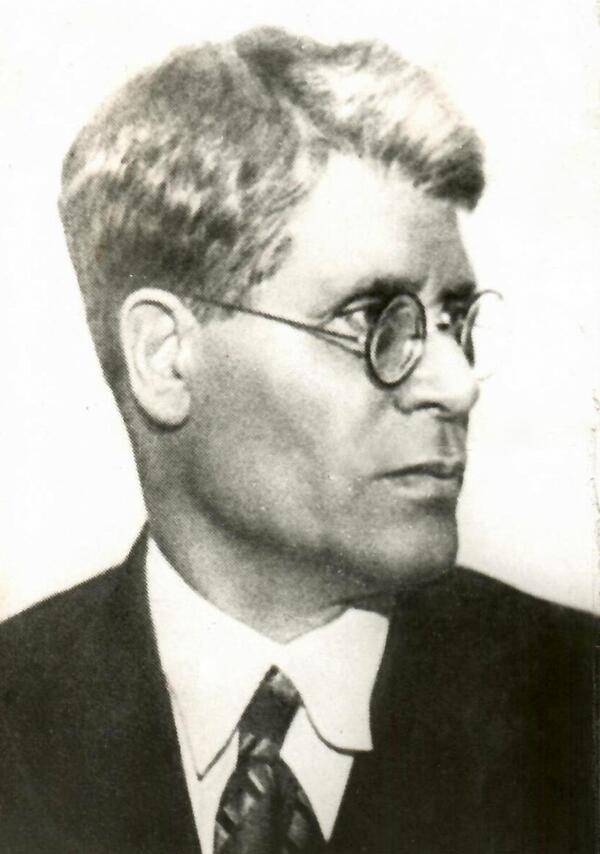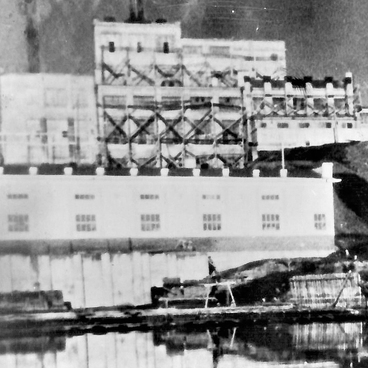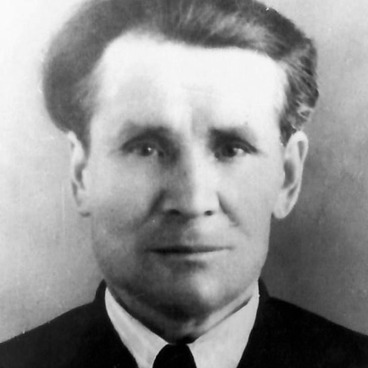Ivan Gubkin was a prominent Russian and Soviet scientist, geologist, professor, statesman, member of the Academy of Sciences of the Soviet Union, founder and, during the first decade since its creation, head of the Moscow University of Oil and Gas, which has since been renamed to bear his name. He was born into a peasant family in the village of Pozdnyakovo in the Murom District of the Vladimir Province in 1871. His grandfather was a barge hauler on the Volga, and his father went fishing in Astrakhan for seven to eight months each year. Their family had five children, with Ivan being the only one to get an education.
In 1880, Gubkin began his studies at the local village school, and in August 1887, he passed the exams and enrolled in the Kirzhach Teachers' Seminary, with his education being paid for by the district council. He graduated in 1890, but due to him writing a satirical epigram about another student, Gubkin was only given a letter confirming that he had attended the seminar course, rather than a formal degree. This education was enough for him to get a job as a teacher in the distant village of Zhayskoye, before being transferred to the village of Karacharovo in 1892.
In August 1895, he went to St. Petersburg to continue his studies. There, he managed to enter the Teachers' Institute, this time paying for his education on his own. At the time, he held a part-time job in the St. Petersburg archive, where he spent three to four hours every day, as well as worked in the Literacy Committee under the Imperial Free Economic Society. Gubkin graduated in May 1898, but in 1903, he enrolled in another higher education program, this time at the St. Petersburg Mining Institute, from which he graduated with honors in 1910, aged 40. For his excellent academic record, Gubkin’s name was inscribed on the institute’s marble plaque.
GUbkin devoted much attention to the complex issue of the oil’s origins. He believed oil to originate from present-day geosynclines, or folds in the Earth’s crust. He was the first scientist to report the enormous oil-bearing capacity of the territories belonging to the so-called ‘Second Baku, ’ meaning the VOlga and Ural oil and gas region. For instance, in September 1929, he wrote: ‘There are clear facts that allow us to assume the presence of oil to the north and south of ChusovskIye GorodkI. We are mapping out an extensive geological survey plan for 1929–1930. It will cover a vast area from the shores of the PechOra River and the Arctic Ocean all the way to the south, along the western slope of the Urals, all the way to the city of Sterlitamak.’
Gubkin headed the Moscow Mining Academy. In 1929, his scientific work led to him being elected as a full member of the Academy of Sciences of the Soviet Union. He combined the qualities of both an outstanding scientist and a prominent statesman.
In 1880, Gubkin began his studies at the local village school, and in August 1887, he passed the exams and enrolled in the Kirzhach Teachers' Seminary, with his education being paid for by the district council. He graduated in 1890, but due to him writing a satirical epigram about another student, Gubkin was only given a letter confirming that he had attended the seminar course, rather than a formal degree. This education was enough for him to get a job as a teacher in the distant village of Zhayskoye, before being transferred to the village of Karacharovo in 1892.
In August 1895, he went to St. Petersburg to continue his studies. There, he managed to enter the Teachers' Institute, this time paying for his education on his own. At the time, he held a part-time job in the St. Petersburg archive, where he spent three to four hours every day, as well as worked in the Literacy Committee under the Imperial Free Economic Society. Gubkin graduated in May 1898, but in 1903, he enrolled in another higher education program, this time at the St. Petersburg Mining Institute, from which he graduated with honors in 1910, aged 40. For his excellent academic record, Gubkin’s name was inscribed on the institute’s marble plaque.
GUbkin devoted much attention to the complex issue of the oil’s origins. He believed oil to originate from present-day geosynclines, or folds in the Earth’s crust. He was the first scientist to report the enormous oil-bearing capacity of the territories belonging to the so-called ‘Second Baku, ’ meaning the VOlga and Ural oil and gas region. For instance, in September 1929, he wrote: ‘There are clear facts that allow us to assume the presence of oil to the north and south of ChusovskIye GorodkI. We are mapping out an extensive geological survey plan for 1929–1930. It will cover a vast area from the shores of the PechOra River and the Arctic Ocean all the way to the south, along the western slope of the Urals, all the way to the city of Sterlitamak.’
Gubkin headed the Moscow Mining Academy. In 1929, his scientific work led to him being elected as a full member of the Academy of Sciences of the Soviet Union. He combined the qualities of both an outstanding scientist and a prominent statesman.



